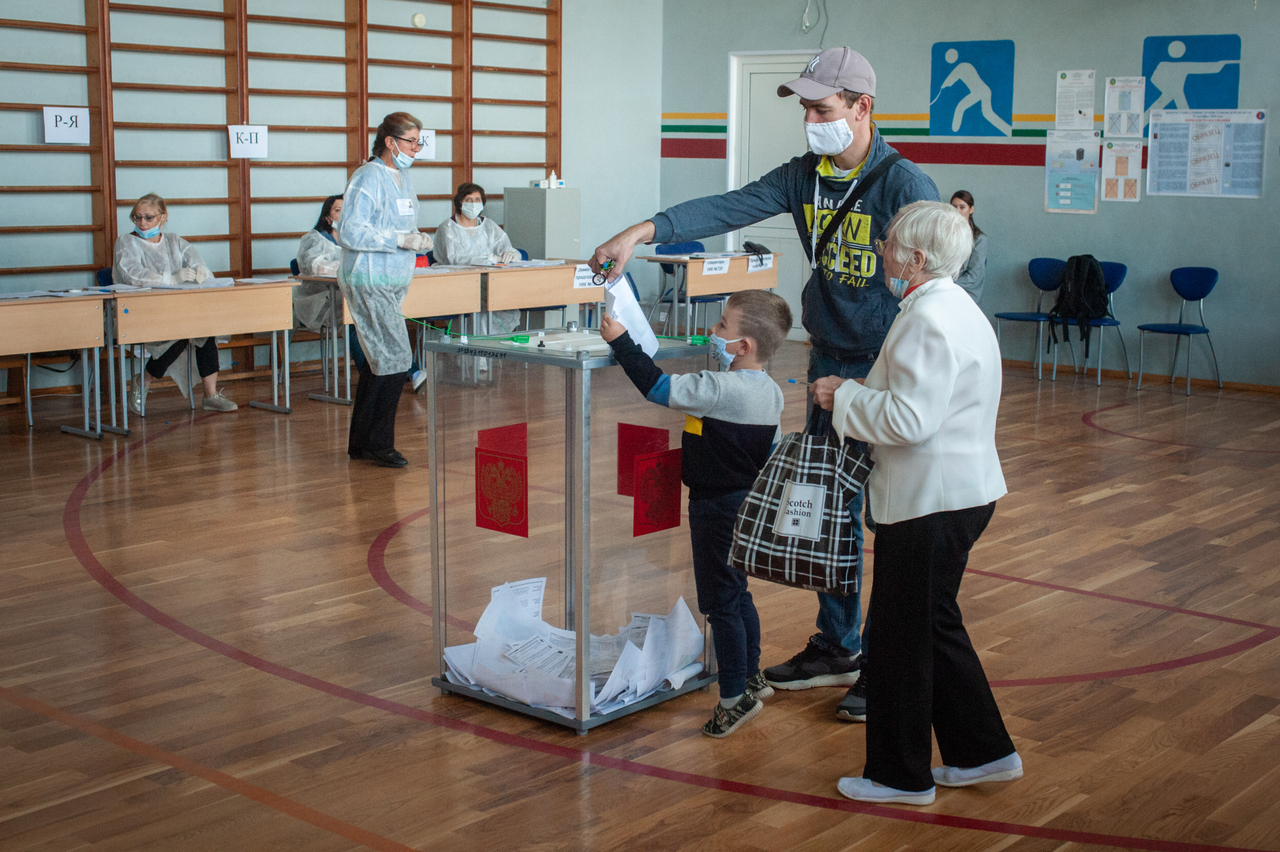
Russia holds regional polls in shadow of Alexei Navalny's poisoning
The vote is seen as a key test of the Kremlin’s control of local politics.
by AFPRUSSIAN PEOPLE ARE today voting in regional elections overshadowed by the poisoning of the main opposition leader Alexei Navalny, who had urged supporters to vote tactically to push out the ruling party backing President Vladimir Putin.
In 41 of the country’s 85 regions, Russians are voting for regional governors and lawmakers in regional and city legislatures as well as in several by-elections for national MPs.
Voters went to the polls this morning, wearing compulsory masks and gloves and undergoing temperature checks to protect against coronavirus infection, AFP journalists saw in the Siberian city of Novosibirsk.
The vote is seen as a key test of the Kremlin’s control of local politics as the United Russia ruling party has seen a drop in popularity amid simmering public anger over falling incomes and economic woes.
One voter in Novosibirsk, 57-year-old retired army officer Vladimir Semyonov, said that he had voted for an opposition candidate, “not one of those they always offer us, to change something, so we don’t have stagnation.”
The poisoning of Navalny, Russia’s most prominent opposition figure, could also influence voters.
After he was evacuated from Siberia to Berlin, German doctors said Navalny had been poisoned with a Novichok nerve agent.
His associates believe the use of the banned chemical weapon shows only the Russian state could be responsible.
Navalny has sought to promote tactical voting, urging his supporters to back whichever is the strongest candidate to defeat the ruling party.
He had been in Siberia to promote his “smart voting” campaign when he fell ill.
Three-day polls
Elections in the country are for the first time being held over three days and some polling stations for early voting were open-air.
Election commission chief Ella Pamfilova at a briefing today angrily denied a report that voters had been casting ballots on a car boot but said open-air voting suited rural voters.
“For some people it’s more convenient to come and sit at a street-stand, that’s their right,” she said.
Early voting began on Friday and today is the main polling day.
Several regions recorded large turnouts in two days of early voting, with over 50% of the electorate casting ballots early in the far eastern Jewish Autonomous Region and in Tatarstan.
The opposition has warned the measure allows the authorities to organise mass vote-rigging, while Pamfilova decried “unobjective and mean” accusations.
“Currently we do not see that many violations,” she said.
The controversial three-day system was first used this summer for a national vote on constitutional amendments that made it possible for Putin to stay in power until 2036.
In what some observers believe is another Kremlin ploy to dilute the opposition vote, candidates are also standing for four little-known new parties.
‘Saying no to the regime’
One of the highest-profile campaigns is taking place in Novosibirsk, Russia’s third largest city.
The head of Navalny’s office in the city, Sergei Boiko, has created an opposition alliance to counter United Russia and the Communist Party.
His ‘Novosibirsk 2020′ coalition has put forward around 30 candidates for the city legislature and campaigned with the help of volunteers from Navalny’s Anti-Corruption Fund.
“This is an opportunity to show the whole of Russia that democratic forces can unite,” Boiko said as he voted today.
He said his supporters had recorded some 50 violations, including an attempt to illegally remove observers from his alliance while a safe containing early votes at one polling station had its seals broken.
“This means some people at night had access to ballot papers from previous days,” he said.
Navalny’s team has urged Russians to vote the ruling party out of power, arguing: “Any deputy is better than a member of United Russia” and pointing to electoral successes in places such as the far eastern city of Khabarovsk.
Tens of thousands have taken to the streets there for the past two months over the arrest of a popular governor who defeated an incumbent from the ruling party in 2018.
The case of the former Khabarovsk governor and the protest movement in Russia’s neighbour Belarus have both sparked small-scale demonstrations in solidarity in Russian cities, suggesting there is potential for a protest vote.